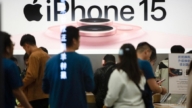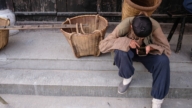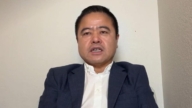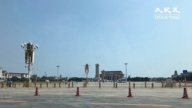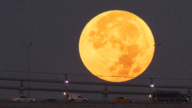【新唐人2012年10月9日讯】2012年中国的“黄金周”共8天,号称“史上最长”,不过对很多人来说,“最长”的不仅是假期,还有堵车的时间,排队的长度,清扫游客垃圾和杂物的时间……“黄金周”乱成一锅“黄金粥”,评论指出,官方试图拉动内需的措施,却破坏了旅游本身的乐趣。
“黄金周”在10月7号结束了,回顾黄金周期间,中国16个省市24条高速公路出现严重拥堵,共发生交通事故6万8千多起,各大旅游景点爆棚,到处人满为患,连敦煌的骆驼也累的“过劳死”。
独立中国问题专家,财经、社会类评论家巩胜利指出,之所以出现这样的现象,是因为长假人为的将所有的人力资源都集中到一起,违反了自然规律。
独立中国问题专家巩胜利:“比如说中国的华山,华山自古一条道,那一条道怎么能经得起千千万万个人都上去踩踏?这可以讲,是一种违反自然规则的事情。按照中国官方的说法,可以刺激人们的消费。”
为了刺激节假日旅游消费,中共宣布“重大节假日期间7座及以下小型客车高速公路免费通行”,这次“黄金周”首次实施,于是在头一天,9月30号0点,高速公路免费时段开始,多条主要高速公路就出现拥堵状况。
北京天则经济研究所副所长冯兴元指出,经济学上早就可以预测到,高速公路取消通行费,将会导致拥堵。
北京天则经济研究所副所长冯兴元:“高速收费取消,肯定会出现(拥堵),经济学早就预测到的这种结果。价格越低,需求量越大,当价格为零的话,那它的需求量应该是最大的。那麽也说明了,你要让道路更加通畅的话,跟平时比较,恰恰不能降低费用,越降低费率就越挤。”
随着经济增长放缓,关于中国经济是否会“硬着陆”的担忧增多,因此“黄金周”究竟能在多大程度上拉动中国的内需备受关注。中国旅游研究院节前预测,黄金周期间,旅游接待人次约为3.62亿,旅游收入约为1800亿元人民币,比上年同期增长24%。
但事实上,游客在“黄金周”期间付出了很多不合理的费用。例如有游客在连云港,吃到一碗165元人民币的天价海鲜炒面,武汉小吃街一碗白粥索价50元。被堵在华山上的内蒙古游客董先生,因为要求退摆渡车的票钱被痛殴,和妻子两人被捅了十几刀。
巩胜利:“由于中国这个内需长期拉不动,有些人就提出这个点子,但是这个点子对老百姓来说,完全可以这么讲:是一种劳民伤财的事情。完全是为了利益而来的,没有任何休闲,舒适。奔命的形式在中国的长假里,我一直提出这种观点,没有任何好处。”
律师罗文方也指出,这样推动的“假日经济”是一种浪费。
律师罗文方“他就是刺激人消费,很明显,刺激有工作和收入这部分人的消费,增加旅游景点收入,间接解决就业问题, 但是这样一年就这几个周,把这些人临时召集起来,黄金周以后,那些人又闲置了啊,这是一种浪费。”
今年“黄金周”的乱象引发众多反思,有国内媒体评论说,只有推行“带薪年休假制度”才是终极解决之道。但早在1995年,推行“带薪休假”制度就写进了劳动法,2008年,国务院发布条例,规定了职工有“带薪休假”的权利,但空有口号,没有实际上的条例支撑它,到现在还只是一纸空文。
采访/田净 编辑/尚燕 制作/柏妮
China’s Golden Week Holiday Chaos Far Cry from ‘Relaxing’
China’s 2012 “Golden Week" was an 8-day holiday period,
said to have been the longest holiday in recent history.
But for many, “the longest" does not only refer to days off,
but also to the traffic jams, queue lengths, and the time taken
to clean the garbage and mess left over by the tourists.
Some say the method the officials used to try to stimulate
domestic demand destroyed the fun of traveling, saying:
“Golden Week chaos into a pot of gold porridge!”
Asia’s 8-day “Golden Week" holiday ended on October 7th—
yet it wasn’t much of a relaxing break for many.
24 highways in 16 Chinese provinces saw serious congestions;
680,000 traffic accidents occurred;
major tourist sites were overcrowded; and
one camel in Dunhuang City even died from overwork.
Gong Shengli, independent china expert, and financial
and social critic, says this phenomenon happened because
China’s human resources are concentrated artificially—
it’s violating the laws of nature.
[Gong Shengli, Independent China Problem Expert]:
“Take the Huashan Mountain in China, for example,
from ancient times until now, there’s only been one path; how
can it stand hundreds of thousands of people walking on it?
You could say it violates the laws of nature,
but officials say it can stimulate people’s consumption."
To stimulate travel, the Chinese Communist Party (CCP)
made the 7-seat minibuses ‘free of charge’ on highways during the major holidays, starting with the Golden Week.
So on September 30th—the first day of free highway travel—
numerous major highways experienced major congestion.
Feng Xingyuan, deputy director of Beijing TianZe Institute
of Economics, says it is predictable that canceling toll fees on highways will lead to congestion.
[Feng Xingyuan, Beijing TianZe Institute of Economics]:
“Canceling highway tolls causes congestion;
economists predicted this result long ago—the lower the price,
the greater the demand; when it’s free, the demand will be the biggest.
It shows that if you want to make traffic flow more smoothly
than usual, you can’t cut the costs; the cheaper the busier."
With China’s economic slowdown, there are rising concerns
over whether the Chinese economy will take a “hard landing".
It’s led to further concerns over how much the Golden Week
will stimulate domestic demand in China.
Before Golden Week the China Tourism Research Institute
forecasted that the holidays will see about 362-million tourists
and tourism revenue would reach about 180-billion yuan;
an increase of 24% from 2011.
In fact, visitors ended up paying astronomical rates
during Golden Week—in Lianyungang City,
fried seafood noodles sold at
165 yuan (around U.S. $26) per bowl;
and in Wuhan Snack St., a bowl of porridge was
50 yuan (around U.S. $8).
Mr. Dong and his wife, who were Inner Mongolian tourists,
were caught in gang fights and stabbed with a knife 9 times
when trying to get a refund for their car ferry ticket after
being stuck in Huashan Mountain.
[Gong Shengli]: “Because of China’s domestic demand
not being sustained long-term, some proposed the idea of raising consumption,
but it’s encouraging wasting money; it’s entirely for profit.
I’ve been advocating this view—there’s no comfort or
leisure left in the Chinese holidays;
just keeping on the run—there are no benefits."
Lawyer, luo Wenfang, says this “holiday economy" is a waste.
[Luo Wenfang, Lawyer]: “It’s clearly to stimulate consumption;
stimulating those who have jobs and income to consume,
increasing the income of tourist sites indirectly,
and solving the employment problem.
But it’s only several weeks annually, and after Golden Week
those who make money off tourists are idle—this is a waste."
This year’s Golden Week chaos has made people reflect on
the holiday period.
Domestic media reported that paid annual-leave would be
the ultimate solution;
yet China’s labor law had already applied ‘holiday pay’
in 1995 and the State Council had issued workers with the right to‘paid leave’ in 2008.
Reality shows that the laws and regulations on workers’ rights
are merely empty slogans, with nothing actually materializing.


